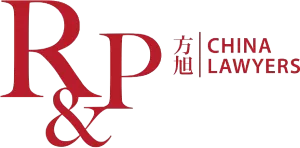- within Privacy, Litigation, Mediation & Arbitration and Tax topic(s)
- with readers working within the Oil & Gas industries
Under the PRC Company Law (2006), directors and senior managers of a foreign-invested, Chinese-registered company have the duty to comply with laws, regulations and the company's articles of association, and owe the company loyalty and diligence. Moreover, they may be liable for compensation to the company if they cause it harm. In principle however, they will not bear civil liability towards third parties (such as the company's creditors) for their actions on behalf of the company.
In recently adopted rules, however, the Supreme People's Court has impacted this well-established principle. For certain activities relating to the non-contribution or withdrawal of registered capital, third-party creditors may directly claim against directors and senior managers. This opens a door for creditors to pressure companies and their managers to fulfill a company's debts; it also emphasizes the importance for directors and managers to establish their duties and the limitations thereto, especially if they are foreigners with little direct influence on the shareholder or its business in China.
New Interpretations
The Provisions on Several Issues concerning the Application of the Company Law of the People's Republic of China (III) ("Interpretations"), which took effect on 16 February 2010, provide new interpretations on various articles of the PRC Company Law. Under Article 13, where an investor fails to (fully) contribute its registered capital, the company or the company's other shareholders may claim against that investor in court. Additionally, the company's creditors may also claim against this investor directly for the company's debts, to the extent of the principal and interest on the capital not yet contributed.
However, if the investor has failed to contribute to an approved increase in registered capital (as opposed to the registered capital during the initial set-up), then the company's creditor can also claim directly against the company's directors or senior managers. These shall assume corresponding liabilities where their breach of the obligations of loyalty and diligence has contributed to the investor's failure to pay-up the required capital. After assuming such liabilities, the directors and managers will then have recourse against the non-contributing investor.
The meaning of "corresponding liabilities" – i.e. in how far an investor's failure to contribute registered capital can be deemed the result of breach of a director / manager's duties of loyalty and diligence – is not clarified. In any case, the Interpretations suggest that directors and managers should pay more attention to a company's capital contribution issues, and closely monitor the investor's performance. Where the investor fails or threatens to fail on-time contribution of increased registered capital, evidence that directors and managers have made strenuous efforts to secure the capital contribution, e.g. in the form of notices or Board Resolutions, could be useful to mitigate their liability.
The Interpretations also contain a number of articles on how to deal with investors and nominee investors, when they illegally withdraw registered capital that has already been contributed – a practice which is not uncommon in China. If an investor withdraws registered capital without due approval, then the company, its other shareholders, and the company's creditors all have a claim against such an investor for return of the principal and interest. More importantly, they also have the choice to claim against those directors and senior managers that have provided assistance in withdrawing the contributed capital. In other words, directors and senior managers may be asked to assume joint and several liabilities for those debts of the company that cannot be cleared, which they have provided assistance.
Comments
The Interpretations could have a deep impact on the position of directors and senior managers of Chinese-registered companies. For example, traditionally many foreigners have been appointed as director without taking an active role in monitoring the company's business, performing more like a nominee director than one with actual influence. This has been acceptable as long as the risks to these persons were minimal – no risk for direct civil liability towards third parties for the company's activities and the activities engaged on behalf of the company, and limits to the risks for criminal liabilities (especially relevant for the legal representative).
This initiative of the Supreme People's Court however introduces the possibility of claims by third parties directly against a company's directors and senior managers. As a result, individuals may be more reluctant to take on a director position or senior manager position in a Chinese enterprise. In any case they may (and should!) insist on very clear limits to their duties and authority, for example in a Shareholder's resolution attached to the appointment letter (for directors), or a Board of Directors resolution attached to the employment contract (for senior managers). This remains the best way to avoid potential civil and criminal liabilities.
For foreign companies operating in China or doing business with Chinese counterparts, however, the Interpretations create another interesting possibility. One major challenge in litigation in China is the enforcement of judgments if the debtor is relatively small and has few assets. Pursuing a counterpart's investors for illegal withdrawal of registered capital has always been an option, but in practice this has been used sparsely due to the difficulty to prove illegal withdrawals. The real problem is that many Chinese companies do not feel much (financial) pressure from their creditors: their owners often prefer to let the company go bankrupt then to settle their debt. Making directors and senior managers directly liable thus gives creditors another choice. By filing a lawsuit against the individuals behind the company, and where possible freezing their personal assets pending the outcome of the dispute, creditors will be able to put much more pressure on these individuals to effectively force a resolution of the dispute.
Relevant articles
The Provisions on Several Issues concerning the Application of the Company Law of the People's Republic of China (III) adopted 27 January 2011, effective 16 February 2011.
Article 13
Where a shareholder fails to fulfill or fails to fully fulfill the obligation of capital contribution, if the company or any other shareholder claims that he shall fully fulfill the obligation of capital contribution to the company according to law, the people's court shall support such claim.
Where the creditor of the company claims that the shareholder who has failed to fulfill or to fully fulfill the obligation of capital contribution shall assume supplementary compensation liability for the debts of the company that cannot be cleared to the extent of the principal and interest on the capital not contributed, the people's court shall support such claim; and where the shareholder who failed to fulfill or failed to fully fulfill the obligation of capital contribution has assumed the aforesaid liabilities, if any other creditor makes the same claim, the people's court shall not support it.
Where a shareholder fails to fulfill or fails to fully fulfill the obligation of capital contribution at the time of establishment of the company, if the plaintiff who initiates a lawsuit according to paragraph 1 or 2 of this Article claims that the promoters of the company and the defendant shareholder shall bear joint and several liabilities, the people's court shall support such claim; and the promoters of the company may recourse against the defendant shareholder after they have assumed the liabilities.
Where any shareholder fails to fulfill or fully fulfill the obligation of capital contribution at the time of capital increase, if the plaintiff initiating a lawsuit in accordance with paragraph 1 or 2 of this Article claims that the directors or senior managers who fail to fulfill the obligations as prescribed in paragraph 1 of Article 148 of the company law and thereby cause the failure to make capital contributions in full amount shall assume the corresponding liabilities, the people's court shall support such claim; and the directors or senior managers may, after assuming the liabilities, recourse against the defendant shareholder.
Article 14
Where any shareholder withdraws any contributed capital, if the company or any other shareholder claims that he shall refund the principal and interest on the contributed capital to the company and the other shareholders, directors, senior managers or actual controllers providing assistance in withdrawing the contributed capital shall assume joint and several liabilities, the people's court shall support such claim.
Where the creditors of the company claim that the shareholder who withdraws any contributed capital shall assume supplementary compensation liability for the debts of the company that cannot be cleared to the extent of the principal and interest on the capital contributions that have been withdrawn, and other shareholders, directors, senior managers or actual controllers providing assistance in withdrawing the contributed capital shall assume joint and several liabilities, the people's court shall support such claim; and where the shareholder who withdrew the contributed capital has assumed the aforesaid liabilities, if other creditors make the same claim, the people's court shall not support such claim.
The content of this article is intended to provide a general guide to the subject matter. Specialist advice should be sought about your specific circumstances.



